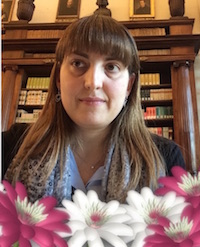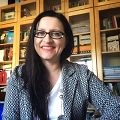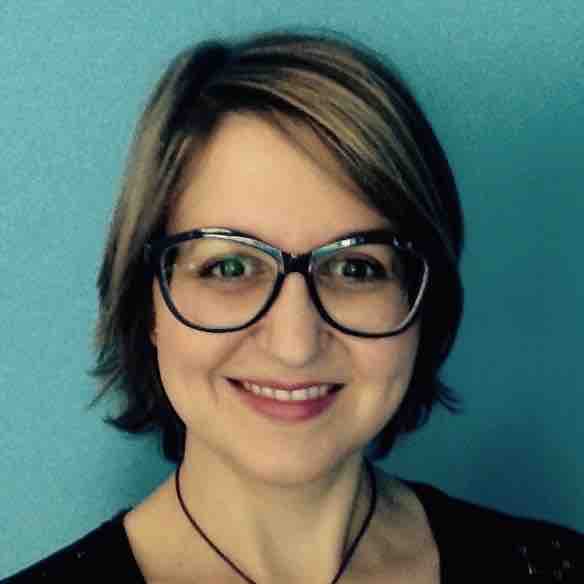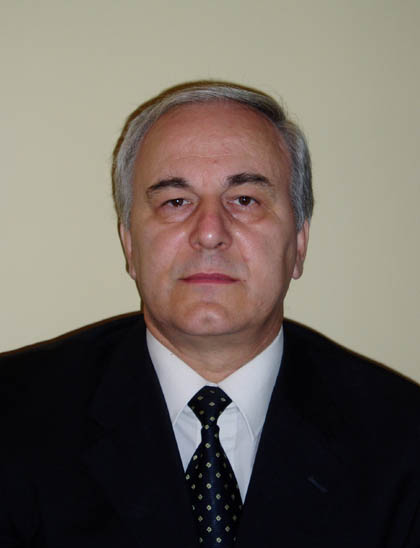Studying at the University of Verona
Here you can find information on the organisational aspects of the Programme, lecture timetables, learning activities and useful contact details for your time at the University, from enrolment to graduation.
Academic calendar
The academic calendar shows the deadlines and scheduled events that are relevant to students, teaching and technical-administrative staff of the University. Public holidays and University closures are also indicated. The academic year normally begins on 1 October each year and ends on 30 September of the following year.
Course calendar
The Academic Calendar sets out the degree programme lecture and exam timetables, as well as the relevant university closure dates..
| Period | From | To |
|---|---|---|
| FULL YEAR | Oct 2, 2017 | Jun 9, 2018 |
| Semester 1 | Oct 2, 2017 | Jan 20, 2018 |
| Semester 2 | Feb 26, 2018 | Jun 9, 2018 |
| Session | From | To |
|---|---|---|
| Winter session | Jan 22, 2018 | Feb 24, 2018 |
| Summer session | Jun 11, 2018 | Jul 28, 2018 |
| Autumn session | Aug 27, 2018 | Sep 22, 2018 |
| Session | From | To |
|---|---|---|
| LAUREE LINGUE - sessione autunnale a.a. 2016/2017 | Dec 18, 2017 | Dec 21, 2017 |
| LAUREE LINGUE - sessione invernale a.a. 2016/2017 | Mar 23, 2018 | Mar 29, 2018 |
| LAUREE LINGUE - sessione estiva | Jul 16, 2018 | Jul 21, 2018 |
| LAUREE LINGUE - sessione autunnale | Nov 12, 2018 | Nov 17, 2018 |
| LAUREE LINGUE - sessione invernale | Apr 12, 2019 | Apr 18, 2019 |
| Period | From | To |
|---|---|---|
| All Saints Day | Nov 1, 2017 | Nov 1, 2017 |
| Immaculate Conception | Dec 8, 2017 | Dec 8, 2017 |
| Christmas break | Dec 22, 2017 | Jan 7, 2018 |
| Easter break | Mar 30, 2018 | Apr 3, 2018 |
| Liberation Day | Apr 25, 2018 | Apr 25, 2018 |
| Labour Day | May 1, 2018 | May 1, 2018 |
| Patron Saint Day | May 21, 2018 | May 21, 2018 |
| Republic Day | Jun 2, 2018 | Jun 2, 2018 |
| Summer break | Aug 13, 2018 | Aug 18, 2018 |
Exam calendar
Exam dates and rounds are managed by the relevant Foreign Languages and Literatures Teaching and Student Services Unit.
To view all the exam sessions available, please use the Exam dashboard on ESSE3.
If you forgot your login details or have problems logging in, please contact the relevant IT HelpDesk, or check the login details recovery web page.
Should you have any doubts or questions, please check the Enrollment FAQs
Academic staff
 cecilia.cantalupi@univr.it
cecilia.cantalupi@univr.it
 katiuscia.darici@univr.it
katiuscia.darici@univr.it
 elisa.destro@univr.it
elisa.destro@univr.it
Hinterholzl Roland
 stella.merlin@univr.it
stella.merlin@univr.it
 sara.paolini@univr.it
sara.paolini@univr.it
 alberto.scandola@univr.it
alberto.scandola@univr.it
 massimo.scotti@univr.it
massimo.scotti@univr.it
 silvia.zollo@univr.it
silvia.zollo@univr.it
Study Plan
The Study Plan includes all modules, teaching and learning activities that each student will need to undertake during their time at the University.
Please select your Study Plan based on your enrollment year.
1° Year
| Modules | Credits | TAF | SSD |
|---|
2° Year activated in the A.Y. 2018/2019
| Modules | Credits | TAF | SSD |
|---|
3° Year activated in the A.Y. 2019/2020
| Modules | Credits | TAF | SSD |
|---|
| Modules | Credits | TAF | SSD |
|---|
| Modules | Credits | TAF | SSD |
|---|
| Modules | Credits | TAF | SSD |
|---|
| Modules | Credits | TAF | SSD |
|---|
Legend | Type of training activity (TTA)
TAF (Type of Educational Activity) All courses and activities are classified into different types of educational activities, indicated by a letter.
German language 3 (2019/2020)
Teaching code
4S002924
Teacher
Coordinator
Credits
9
Also offered in courses:
- German language 3 of the course Bachelor's degree in Languages and Cultures for Publishing
Language
German
Scientific Disciplinary Sector (SSD)
L-LIN/14 - LANGUAGE AND TRANSLATION - GERMAN
Period
II semestre (Lingue e letterature straniere) dal Feb 17, 2020 al May 30, 2020.
Learning outcomes
On successful completion of this module, students will be able to:
- apply the basic descriptive categories of phonology to the phonological system of German;
- recognize the most important phonological processes of German;
- describe the most important differences between the phonological systems of German and Italian;
- carry out a phonetic transcription of Standard German words;
- demonstrate to have the German language skills that correspond to the C1 level of the CEFR.
--
Nach erfolgreichem Abschluss des Seminars sollen die Studenten in der Lage sein:
- die grundlegenden Kategorien eines phonologischen Beschreibungsmodells auf das phonologische System des Deutschen anzuwenden;
- die wichtigsten phonologischen Prozesse des Deutschen zu erkennen;
- die wichtigsten Unterschiede zwischen dem phonologischen System des Deutschen und des Italienischen zu beschreiben;
- eine phonetische Transkription standarddeutscher Wörter anzufertigen;
- Deutsch-Sprachkompetenz auf C1-Niveau (GeRS) nachzuweisen.
Program
Introduction to the phonology of German
This course introduces the basic concepts of articulatory phonetics and phonology which will then be used to investigate the phonological system of German. Topics of discussion include the German vowel and consonant system, the major phonological processes active in German (final devoicing, r-vocalization etc.) and the German syllable structure. The phonological structures of German will systematically be compared with the equivalent structures of Italian. Additionally the pronuciaton of colloquial German and regional variation will be considered.
This course is taught in German.
Reference list
(1) Text book: Alber, Birgit (2007): Einführung in die Phonologie des Deutschen. Verona: QuiEdit.
(2) Additional references for topics not included in the text book:
- Hall, Tracy Alan (2011): Phonologie. Eine Einführung. 2., überarbeitete Auflage. Berlin/New York: De Gruyter: Kap. 10.2 Prosodische Phonologie (pp. 307-320).
- Kleiner, Stefan (2011-): Atlas zur Aussprache des deutschen Gebrauchsstandards (AADG). Unter Mitarbeit von Ralf Knöbl. http://prowiki.ids-mannheim.de/bin/view/AADG/.
(3) The following books are for those students who have difficulties in reading the German texts:
- Nespor, Marina (1999): Fonologia. Bologna: Il Mulino.
- Graffi, Giorgio/Scalise, Sergio (2002): Le lingue e il linguaggio. Introduzione alla linguistica. Bologna: Il Mulino.
Additional material will be available on the e-learning platform of the course.
--
Einführung in die Phonologie des Deutschen
In dieser Lehrveranstaltung wird Grundwissen im Bereich der artikulatorischen Phonetik und der Phonologie vermittelt. Dieses Grundwissen wird dann dazu verwendet, um das phonologische System des Deutschen zu untersuchen. Dabei werden besonders folgende Bereiche berücksichtigt: das Vokal- und Konsonantensystem des Deutschen, die wichtigsten phonologischen Prozesse (Auslautverhärtung, r-Vokalisierung usw.) und die Silbenstruktur. Die verschiedenen phonologischen Strukturen des Deutschen werden jeweils mit denen des Italienischen verglichen. Vorgesehen sind außerdem Exkurse zur Aussprache des deutschen Gebrauchsstandards und zur regionalen Variation.
Die Unterrichtssprache dieses Seminars ist Deutsch.
Bibliographie
(1) Lehrwerk: Alber, Birgit (2007): Einführung in die Phonologie des Deutschen. Verona: QuiEdit.
(2) zusätzliche Literatur für im Lehrbuch nicht behandelte Seminarthemen
- Hall, Tracy Alan (2011): Phonologie. Eine Einführung. 2., überarbeitete Auflage. Berlin/New York: De Gruyter: Kap. 10.2 Prosodische Phonologie (S. 307-320).
- Kleiner, Stefan (2011-): Atlas zur Aussprache des deutschen Gebrauchsstandards (AADG). Unter Mitarbeit von Ralf Knöbl. http://prowiki.ids-mannheim.de/bin/view/AADG/.
(3) Folgende Texte sind zum Nachschlagen gedacht, falls es Probleme beim Lesen der deutschen Texte gibt:
- Nespor, Marina (1999): Fonologia. Bologna: Il Mulino.
- Graffi, Giorgio/Scalise, Sergio (2002): Le lingue e il linguaggio. Introduzione alla linguistica. Bologna: Il Mulino.
Weitere Unterrichtsmaterialien werden auf der E-Learning-Plattform (Moodle) zur Verfügung gestellt.
| Author | Title | Publishing house | Year | ISBN | Notes |
|---|---|---|---|---|---|
| Alber, Birgit | Einführung in die Phonologie des Deutschen | QuiEdit | 2007 | 9788889480250 |
Examination Methods
Final exams throughout the year are written. Students which attend classes regularly are offered the possibility to take a partial written exam during the course followed, after certification of the language skills, by partial oral exam on specific parts of the program. The exams consist of a theoretical part (questions regarding basic concepts) and a practical part which comprises phonetic transcription, determination of phonological processes and syllable structure analysis of German words, in contrast to Italian, additionally the classification and discussion of non-standard variants. The language of both exams is German.
Linguistic competence required: level C1 (CEFR), certified either by the CLA (Centro Linguistico di Ateneo) or by any other authorized testing center. The final grade will be calculated as the mean score of the grade of the exam and the grade obtained for the C1 certificate.
Students taking this exam must have completed the language and literature exams of the first and second year.
--
Für die Lehrveranstaltung ist eine schriftliche Prüfung (Klausur) vorgesehen. Den studenti frequentanti wird während des Seminars eine schriftliche Teilprüfung angeboten, die zu den üblichen Prüfungsterminen durch eine mündliche Teilprüfung zu spezifischen Themen des Seminarprogramms ergänzt wird. Die Prüfungen bestehen aus einem theoretischen Teil (Fragen zu Grundbegriffen) und einem praktischen Teil, der phonetische Transkription, Bestimmung phonologischer Prozesse und Silbenstrukturanalysen deutscher Wörter umfasst, immer auch im Kontrast zum Italienischen, sowie die Interpretation und Diskussion nicht-standardsprachlicher Varianten. Die Prüfungen müssen in deutscher Sprache abgelegt werden.
Voraussetzung für die Prüfung ist die Sprachkompetenz C1 (GeRS). Die Sprachkompetenz kann durch die Zertifikate des CLA (Centro Linguistico di Ateneo) oder anderer anerkannter Institute nachgewiesen werden. Die Endnote des Kurses ist der Mittelwert aus der Note der hier beschriebenen Prüfung und der Note des C1-Zertifikats.
Es wird weiterhin darauf hingewiesen, dass nur diejenigen Studierenden zur Prüfung "Deutsche Sprache 3" zugelassen werden, die bereits die Sprach- und Literaturprüfungen des ersten und zweiten Jahres erfolgreich bestanden haben (s. Studienordnung).
Type D and Type F activities
To discover all the teaching activities accredited by the foreign teaching college click here
Career prospects
Module/Programme news
News for students
There you will find information, resources and services useful during your time at the University (Student’s exam record, your study plan on ESSE3, Distance Learning courses, university email account, office forms, administrative procedures, etc.). You can log into MyUnivr with your GIA login details: only in this way will you be able to receive notification of all the notices from your teachers and your secretariat via email and soon also via the Univr app.
Student login and resources
Gestione carriere
Assegnazione tutore
Attività accreditate D/F
Calendario didattico dettagliato
Cambio lingua curriculare
Competenze informatiche
Competenze linguistiche (prima e seconda lingua)
Competenze linguistiche in triennale (terza lingua CFU F)
Compilazione del piano didattico
Corso di Lingua portoghese
Erasmus+ e altre esperienze all'estero
Linguistic training CLA
Presentazione dei corsi di studio e Open day
Graduation
Saperi minimi
Stage e tirocini
Le attività di stage sono finalizzate a far acquisire allo studente una conoscenza diretta in settori di particolare interesse per l’inserimento nel mondo del lavoro e per l’acquisizione di abilità professionali specifiche.
Le attività di stage sono svolte sotto la diretta responsabilità di un singolo docente presso studi professionali, enti della pubblica amministrazione, aziende accreditate dall’Ateneo veronese.
I crediti maturati in seguito ad attività di stage saranno attribuiti secondo quanto disposto nel dettaglio dal “Regolamento d’Ateneo per il riconoscimento dei crediti maturati negli stage universitari” vigente.
- Tutte le informazioni in merito agli stage per futuri studenti sono disponibili alla pagina Stage e tirocini.
- Tutte le informazioni in merito agli stage per studenti iscritti sono pubblicate in MyUnivr - come fare per - stage e tirocini.
- Tutte le informazioni in merito agli stage per le aziende sono disponili alla pagina Stage e tirocini per azienze.
Ulteriori informazioni al seguente link https://www.univr.it/it/i-nostri-servizi/gestione-carriere-studenti-lingue-e-letterature-straniere/stage-e-tirocini-lingue-e-letterature-straniere

 +39 045802 8409
+39 045802 8409















































